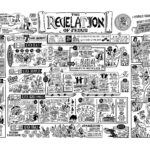Preparing for quantitative finance interviews can feel like navigating a dense fog. Aspiring quants often face an overwhelming amount of study material, making it difficult to pinpoint exactly where to focus their efforts. This guide aims to cut through the confusion and offer a practical pathway to interview success, centered around targeted preparation and efficient learning.
Why Quant Interview Preparation Feels Impossible
The sheer breadth of knowledge seemingly required for quant roles can be daunting. Looking at lists of essential technical skills, you might encounter topics ranging from advanced mathematics like partial differential equations and stochastic processes to complex coding paradigms such as design patterns and object-oriented programming. While these lists highlight important areas, attempting to master everything at once is not only inefficient but also likely to lead to burnout and a sense of being perpetually unprepared. The key is to shift from a broad, unfocused approach to a more strategic and practical methodology.
A Practical Strategy: Learning Through Interview Question Failure
The most effective way to prepare for quant interviews is to actively engage with interview questions early and often. Instead of passively absorbing vast amounts of information, start by tackling real interview questions, even if you anticipate failing. This “fail fast, learn faster” approach provides immediate feedback on your knowledge gaps and directs your study efforts precisely where they are needed most.
Focus on Weaknesses
By attempting questions from resources like the Jane Street interview PDF or Dirk Bester’s Quantitative Primer, you quickly identify your weaker areas. For example, struggling with probability or stochastic calculus questions signals a need to deepen your understanding in those specific domains.
Time-boxed Learning
Once you identify a knowledge gap, dedicate focused study time to address it. A practical approach is to allocate around 30-40 hours to a specific topic initially. This timeframe is typically sufficient to grasp the fundamental concepts without getting bogged down in excessive detail. For instance, spending 40 hours on probability and statistics, including working through practice questions and perhaps coding basic simulations, can build a solid foundational understanding.
The Power of Basics
It’s crucial to remember that a strong grasp of the fundamentals is often more valuable than superficial knowledge of advanced topics. Mastering basic concepts in areas like linear algebra, probability, and calculus not only provides a solid foundation but also sharpens your problem-solving skills and prepares your mind to tackle the brainteasers frequently encountered in quant interviews. This “priming” effect is often underestimated but plays a significant role in interview success.
Essential Resources for Your Preparation
To kickstart your practical preparation, focus on readily available and highly relevant resources:
Core Books
- “Quant Interview Questions and Answers” by Mark Joshi: Offers a comprehensive collection of questions and insights into the interview process.
- “Frequently Asked Questions in Quantitative Finance”: Provides answers to common theoretical and practical questions in the field.
- “Heard on The Street: Quantitative Questions from Wall Street Job Interviews”: Presents real-world interview questions to test your problem-solving abilities.
- “A Practical Guide To Quantitative Finance Interviews”: This book, directly relevant to our keyword, should be a primary resource for focused preparation.
Key PDFs
- Jane Street Interview Questions PDF: A valuable source of challenging probability and quantitative reasoning questions.
- Dirk Bester’s Quantitative Primer: Contains up-to-date interview questions across various quant topics.
Online Coding Practice
- LeetCode: Essential for honing your algorithms and data structures skills, mirroring the coding challenges increasingly common in quant interviews. Focus on articles and problem sets related to data structures and algorithms to align with quant interview needs.
Conclusion
Preparing for quantitative finance interviews is undoubtedly challenging, but by adopting a practical, question-driven approach, you can navigate the complexities effectively. Embrace the learning process through targeted practice, focus on building a strong foundation in core concepts, and utilize the recommended resources to refine your skills. Remember, targeted preparation and learning from your attempts are the keys to unlocking success in your quant interview journey.
